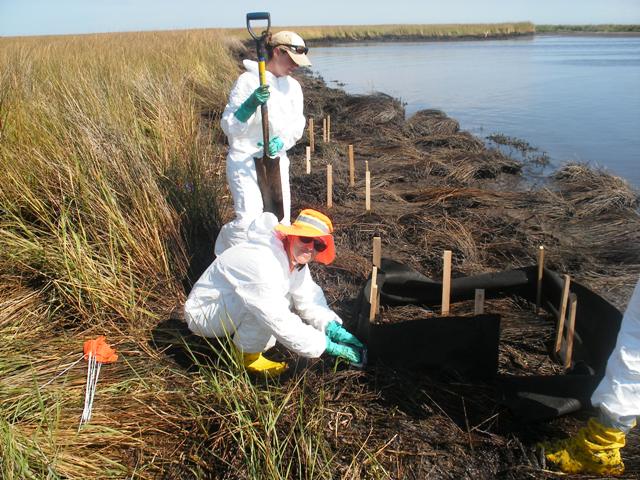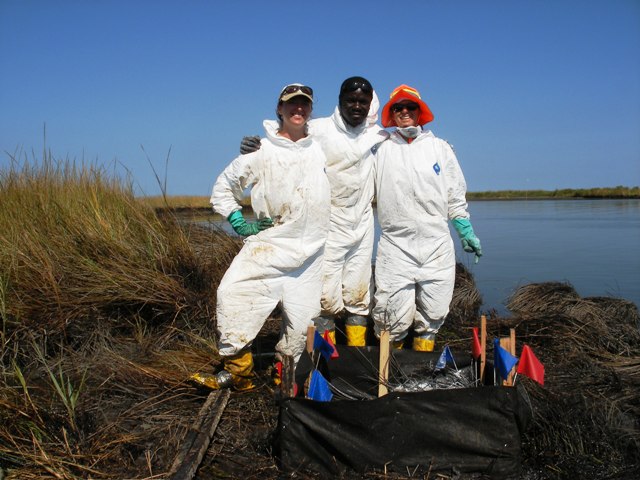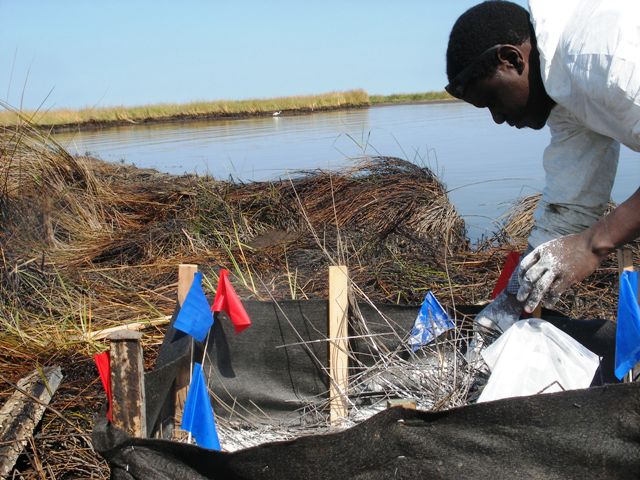Title: Biodegradation of the Deepwater Horizon oil in Florida marsh ecosystems and exploration of novel passive remediation strategies
Andrew R. Zimmerman (UF Geological Sciences) and Brian R. Silliman (Duke University)
Funding Agency: BP/Florida Institute of Oceanography
ABSTRACT:
Marshes represent perhaps the most critical habitat to maintaining the ecological and economic health of Florida’s Gulf Coast. They are also among the most sensitive to damage from Deepwater Horizon (DH) oil contamination. Paradoxically, more damage may be done by misguided efforts at oil removal from the marsh than by the oil itself. Other options such as microbial treatment carry large costs and fertilization can lead to eutrophication in some cases. To guide the remediation decisions to be made in regards to response to DH-oil contamination of Gulf Coast marshes, the proposed research will study the fate of DH oil and its associated ecological consequences under three possible response strategies that we consider cost and goal-effective for Gulf Coast marshes. In addition to monitoring natural biodegradation of DH oil (no treatment) which is expected to be relatively rapid for less contaminated marshes given the high local temperatures and active microbial communities, we will apply two novel treatments:
1) Chemical aeration of sediments as it is oxygen concentration that is the most likely limiter of natural oil degradation.
2) Biochar additions to the sediments as this agent is a natural sorbent (pyrolyzed organic materials such as agricultural residues) that may minimize ecological damage while maintaining or enhancing oil degradation.
This project will use organic geochemical tools to examine the biodegradation of the Deepwater Horizon (DH) oil in an affected Gulf Coast marsh setting, along with associated parameters of ecosystem health. In addition, it will develop and test two methods to minimize detrimental effects of oil contamination on marsh ecological functioning. The first method, chemical aeration (calcium peroxide addition), is a relatively simple and low-cost method to enhance oil biodegradation rates. The other method, biochar amendment (adding charcoal adsorbent), is a completely novel solution which has received much attention from a small group of aficionados, but has never been tested. Enticingly, its use also may be associated with a number of potential side-benefits. The specific aims of this project are:
1) Measure natural DH oil degradation rates in low and high oil-impacted Gulf Coast marshes.
2) Assess the ecosystem impacts of DH oil contamination in low and high oil impacted marshes and how these vary over time (and with oil degradation).
3) Examine the effect of enhanced soil aeration on DH oil degradation rate and ecosystem health in no, low and high oil impacted Gulf Coast marshes.
4) Examine the DH oil adsorptive properties of a range of biochars (biomass combustion residues).
5) Examine the effect biochar addition on DH oil degradation rate and ecosystem health in no, low and high oil impacted Gulf Coast marshes.


